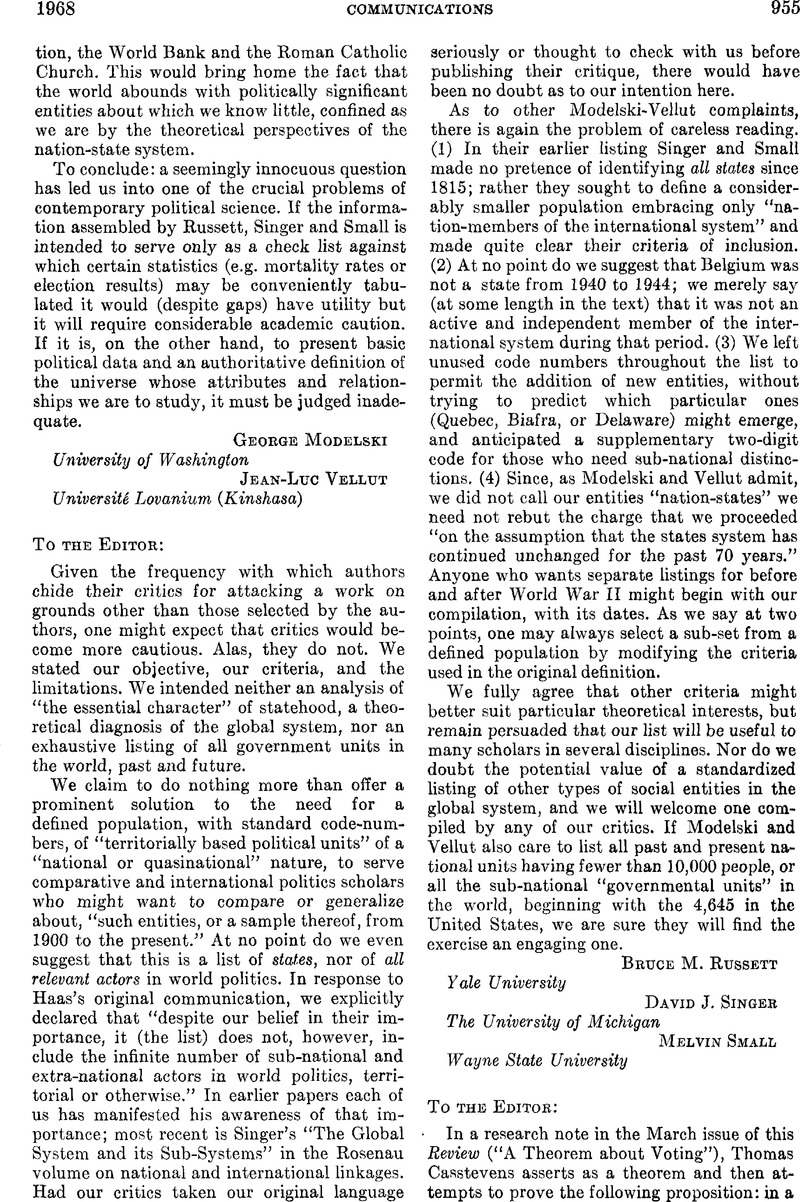Article contents
[no title]
Published online by Cambridge University Press: 01 August 2014
Abstract

- Type
- Communications to the Editor
- Information
- Copyright
- Copyright © American Political Science Association 1968
References
* In similar vein, an alternative “postulate,” which would simplify the proof even further, would be to assume that all candidates are running equally well; or, more precisely, the conditional probability of a candidate winning, given that the voter in question votes for him, is equal for all candidates. This also has the status of an assumption which is true of some elections (and voters), and not of others, and it is trivial to show that the voter in question will act in accord with his true preferences in those elections for which this “postulate” happens to be true. It is clear, however, that this fact does not preclude the possibility of strategic considerations arising in other elections which will lead voters to act quite differently.
- 6
- Cited by





Comments
No Comments have been published for this article.